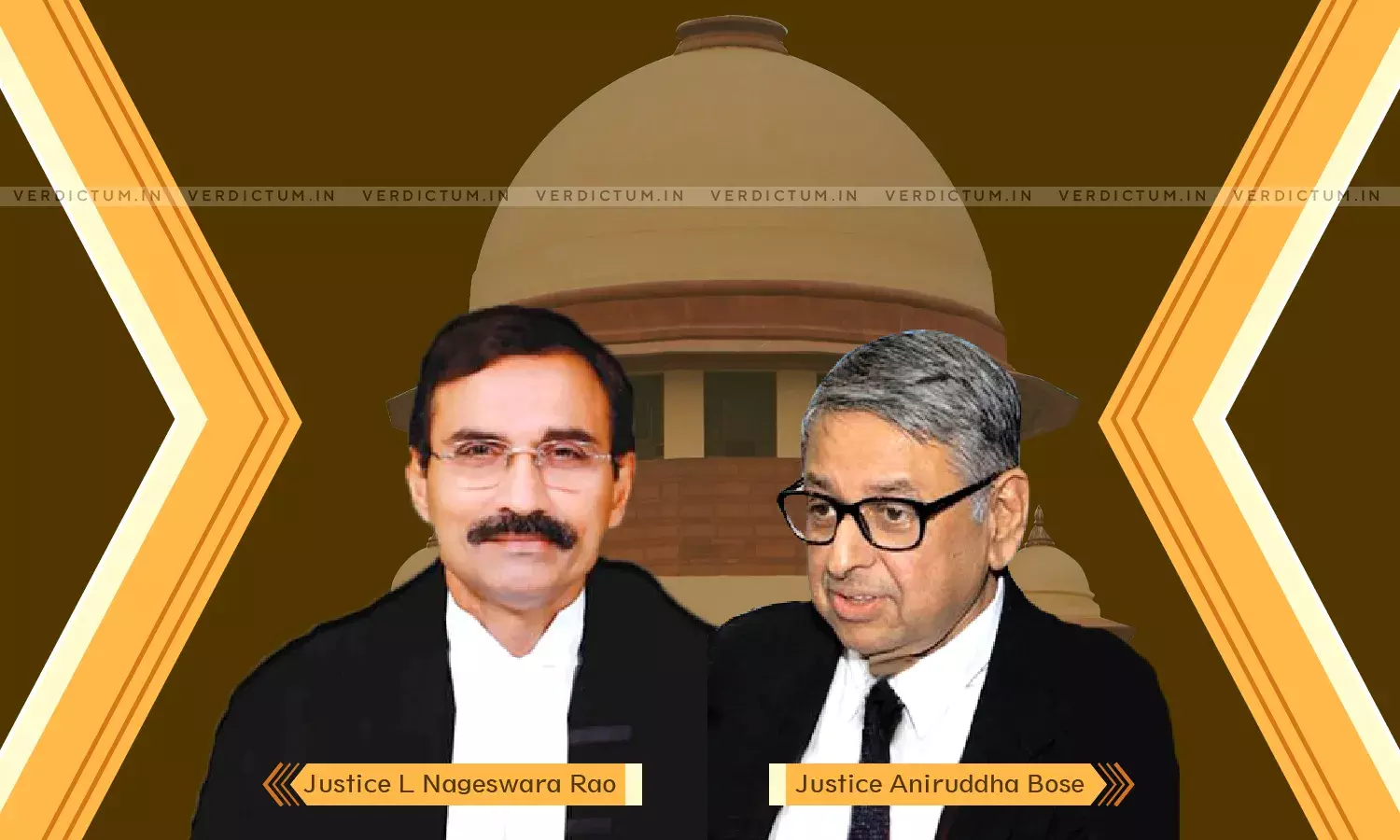'Orders Encroached Upon Administrative Power Of CJ'– Supreme Court Overrules Raj. HC Single Judge's Order On Listing Of Cases During Pandemic

A two-judge Bench of Justice L Nageswara Rao and Justice Aniruddha Bose was seized of appeals against orders passed by a Single Judge of the Rajasthan High Court containing a slew of general directions regarding making arrests and listing of criminal cases before the High Court during the pandemic situation. The Supreme Court observed held that, "In passing such order, the learned Single Judge had assumed administrative jurisdiction of the Chief Justice to allocate business to individual Judges of the Court. Also, by issuing such sweeping directions, decision has been taken which should have been left to be decided by the respective Benches for determining as to whether the specific cases fell in the category of extreme urgent matters warranting listing, even during the pandemic."
In this case, a single-judge Bench of the High Court of Rajasthan had passed blanket orders, while hearing bail applications, for not listing bail appeals, applications for suspension of sentence in appeals, and revisions in the category of extreme urgent matters. The Court had also directed the police authorities not to arrest persons accused of offences carrying maximum sentence of three years.
Both the orders concerning the listing of cases and making arrests were challenged by the High Court of Rajasthan before the Supreme Court.
Though bail applications wherein orders were passed were subsequently dismissed and the general directions had outlived their duration, the Supreme Court proceeded to consider the appeals on merit.
The Apex Court, after analyzing the orders passed by the High Court, held, "The orders were passed in relation to criminal matters and would have had adverse effect on those suffering or anticipating pre-trial detention or convicts awaiting of their appeals."
The Court held that the Single Judge had committed an error in picking up the four categories of litigations to conclude that these categories were not to be listed under the category of extreme urgency.
"It was also improper for the learned Single Judge to come to a general finding that when there is complete lockdown the bail applications, appeal under SC/ST Act and applications for suspension of sentence in appeals and revisions could not be considered to be matters of extreme urgency," the Court observed.
Moreover, the Bench asserted that these kinds of sweeping orders in our adversarial adjudicatory system would be contrary to law as many people would be affected by them without any knowledge of the proceeding. The Court noted that it was not within the jurisdiction of the Court to direct the Registry to not list those four categories of litigations in the category of extreme urgent matters.
The Court also held, "The right of an accused, an undertrial prisoner or a convicted person awaiting appeal court's verdict to seek bail on suspension of sentence is recognized in Sections 439, 438 and 389 of the 1973 Code."
The Court held that such a scheme violates the personal liberty of the jail inmates. "A blanket order prohibiting listing of bail application or applications for suspension of sentence in appeals also infringe upon the right of personal liberty of incarcerated persons."
"Such right has been taken away by judicial order, without compliance of procedure established by law, which in 16 our constitutional jurisprudence is akin to "the due process" dictum. Right to apply for bail is an individual right implicit in Articles 14, 19 and 21 of the Constitution", the Court observed.
The Bench added, "If there is a blanket ban on listing of these applications, even for offences with lesser degree of punishment, that would effectively block access for seekers of liberty to apply for bail and in substance suspend the Fundamental Rights of individuals in or apprehending detention. Such an order also has the effect of temporarily eclipsing statutory provisions."
The Court asserted, "The directions issued had the potential for breaching the constitutional and legal rights of individuals who could be or are arraigned in criminal action and also put fetters on power of investigating agencies."
The Court allowed the appeals and held that since the impact of the orders no longer survived, it did not find any need to set aside the orders under appeal.

